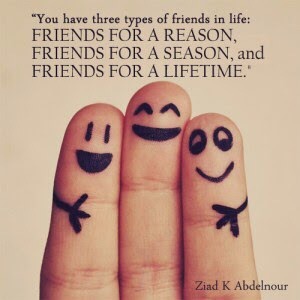 The end of another academic year, my 27th in Higher Education, my 20th since completing my PhD, and my 5th as a therapist. There is a lot of life in that sentence; a lot of re-modelling, career change, new beginnings, more endings. The older I get, the more I witness myself in transition, and understand this as the only consistency in life. Constantly changing. Like the illustrations of dutch artist Maurits Cornelis Escher.
The end of another academic year, my 27th in Higher Education, my 20th since completing my PhD, and my 5th as a therapist. There is a lot of life in that sentence; a lot of re-modelling, career change, new beginnings, more endings. The older I get, the more I witness myself in transition, and understand this as the only consistency in life. Constantly changing. Like the illustrations of dutch artist Maurits Cornelis Escher.
In the counselling and psychotherapy profession we hold great values in endings, making the whole process as conscious as we can. This is true in the room with clients, and true in the classroom with trainees. We, the course team at the University, have just seen another set of cohorts finish their training: two post-graduate diploma counselling courses, and our MSc psychotherapy cohort. Three courses, three different group endings; a total of 55 trainees, some 55 different individual styles of endings. I witnessed most of them, and I felt a mix of emotions – seeing ‘good’ endings, and seeing endings that not ‘bad’ per se yet potentially leaving ‘unfinished business’.
We’ve also taken the first year post-graduate diploma students through their ‘end of the first half’: the intention being to bring in to their awareness that this time next year it will be there turn to end as a group; a motivation to instigate reflection upon how they greet and meet endings in their life: to consider their approach to endings historically, to consider ‘playing’ with alternative ways, and to consider how they can finish with as few regrets, with as little unfinished business as they can.
Across my private practice and my teaching work, the importance of endings is sometimes questioned, and my attempts to bring this aspect of the relationship to the fore are often resisted by clients and trainees alike. The group ‘groan’ heard throughout the academic year whenever we bring up endings – “not again!” or student module evaluations – “too much emphasis on endings”: both bring on a knowing smile. “You’ll see, you’ll get it….one day”. Because I did when moving through my training and in to private practice…and with a deeper engagement in my own life around phases, transition and endings.
So why DO therapists repeatedly bring a focus to the ending of the work – sometimes even from day 1 of the therapeutic relationship? Life is full of endings – and not just the big (end of life) one. We encounter many endings before we reach death, and given the importance of “dying well”, it makes sense that we practice ‘dying’ as often as we can. And whilst they might look different at face value, the ending of a relationship, the ending of a job, the end of a holiday, the ending of a well-enjoyed book, even the ending of a favourite cafe as it closes – all of these might contain a similar feeling tone underneath.
Reflecting on the minutiae of an ending can reveal something telling about our attitudes, behaviour, and traits. Take the example of being at a house party. Imagine yourself there, knowing the party is set to finish at around midnight. Do you tend to slip out the back about 30 minutes before? Or, is it 11:55 and you pour yourself another glass of wine as the majority of people are leaving or have already left? Do you need to say goodbye to everyone, have a few 1-2-1 goodbyes with the hosts and your key people, or do you leave unnoticed? Does this pattern manifest more generally? How are you in relational endings? Do you tend to slip out of people’s lives silently? Do you need a drastic break-up to end? Or, perhaps you stay in relationships too long, prioritising others’ needs above your own? When I noticed the patterns I have developed, I was struck by its repeating on a smaller level in my life. I began to notice how I couldn’t not finish a book even if I wasn’t enjoying it; mimicking how I would stay in friendships even to my cost. I’ve had a varied experience of endings, some heartbreak, some confusion and not knowing…yet the more I understand my own process, the more intentional I can make the ending: to leave, or be left, with more clarity and understanding.

Last week I wrote about a relationship workshop I attended with Susan Piver in London. Susan explained that one promise we can make inrelationship is “I promise to let go”. How we end could be likened to how we let go. And just like letting myself put down a book, I have learnt to let go in relationships. A friend once shared the expression depicted to the right here…Interestingly, this friend is no longer a friend – we fell in to the first category, and at the time I found that hard to deal with, especially as I never understood why we ended or in fact when she had made that decision. I have learnt that for me, its not about the actual losing, its the ‘not knowing’ that deeply affects me. I can find myself at one of two ends: to be deeply invested and in contact; or find equal security in the complete withdrawal – it has to be either / or, black and white. My relational ‘letting go’ is trusting the space in between: not leaving, nor not pushing to ensure I’’m not left. In becoming more conscious, I have learnt to check in, to be more honest about my needs and to find the courage to talk about my relating style and invite other’s experience of me.
Ritual is an important aspect of ending well, perhaps because it provides the knowing, the establishing that an end has occurred. Ritual acknowledges transition. It enables the loss of what came before to be reflected upon and felt; and it enables the fear and excitement of the future to be greeted and met. There can also be a grief for the choice not made – as transitions can often open up around a new job, a new relationship: and in those choices we might have turned down another option. Ritual also gives an opportunity to celebrate what has been accomplished – maybe that is honouring the happiness or the struggles, or indeed as most psychotherapeutic models of change suggest, there will be both. Having witnessed a few endings of counselling and psychotherapy courses, what I have considered a ‘good ending’ is where both those polarities have been aired. Celebration can be joyous: and where there is joy there is always sadness; there might be relief so alongside that must be tension. I remember finishing my meditation teacher training in 2012, a course I completed in New York which meant a shift from once close- to now transatlantic relationships..and I forecasted that was going to mean the end of some relationships. At the end of the final training weekend there was joy and melancholy, and I remember wishing there was a word for happy-sad. As humans, we can be far too set on making everything neat and tidy: and one lesson for me (which I hope I help my clients understand) is the ability to contain “both / and” rather than live by “either / or”.
As the start of this post, I said I saw a mix of endings at the close of the academic year last week. I saw some students courageously stepping forward and getting the ‘goodbye’ they wanted with one another; and I looked on sadly as some were probably getting what they have always got. In my sadness for others, my only hope is that people became aware of how they ended and can use that experience to try something different next time. I was also aware I didn’t have the endings I would have liked with some, and I have also been reflecting on what stopped and blocked me. All we can do is keep on learning.

